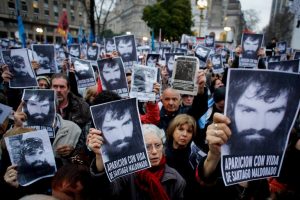Latin American History and Culture:
David covered the topic of the murder of a prominent Native rights activist in the wake of the Argentinian elections. The current ruling party the Republican Proposal is under intense criticism for not fully investigating the murder, many believing that perhaps they might have played a role in the incident or simply ruling it out as not important. This is important for the upcoming election because the opposition party is using these crimes against Native people against the current government in an attempt to draw up support for themselves. It also draws many connections from the colonial era touching on the treatment of Native people and their lands in relationship with governments.
Class Discussion:
Today we were divided into two groups and debated on the moral rights or wrongs of European colonialism in America. The first group was debating in favor of Colonialism stating that religiously the Pope was the word of God and God had given them permission and power to rule over people less than them. A quote from Aristotle, in particular, was used to say that the wise and prudent men will always rule over the more dimwitted despite the obvious physical strength. This was used in favor of enslavement because Europeans believed that they were much smarter compared to the Natives and used this as a moral justification. They also cited the natives lack of culture and science to being a savage group of people that need to be civilized, even dramatizing the Cannibal nature of them. The Spaniards felt it was their duty to save these people from themselves by teaching them Christianity and therefore salvation in the afterlife, however, they didn’t put much emphasis on this life.
In contrast, the 2nd group opposing the Spaniards moral right for colonization in America cited monks who had converted to the side favoring the natives. They mentioned how awful the Spaniards were treating the native people of this land, that what they were doing was not good and Christian. They were committing great sins by enslaving these peoples and even introducing them to the true God was not enough to justify such bad treatment.
Important Terms and Reading for Today:
Bartolome de las Casas- Spanish Dominican friar who defended the rights of Native Amercian people against the Spanish colonial rule
Juan Gines de Sepulveda- Spanish renaissance thinker with a humanist approach and a huge proponent of slavery in the New World
The New Land of the Indes- laws created by the Spanish King to prevent Exploitation and mistreatment of indigenous people
- Readings on Latin America and its People



